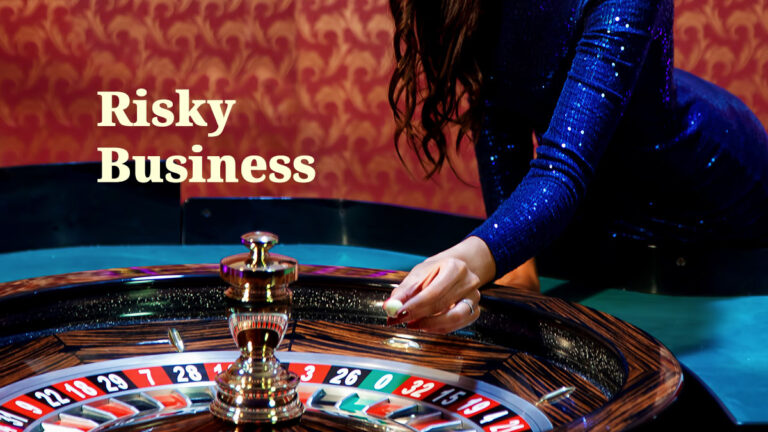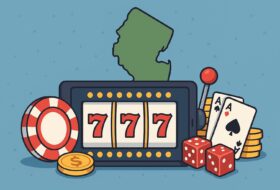
Slots are the gambling product most strongly associated with addictive behavior, but a new study of online gamblers in the United Kingdom suggests that some live dealer games aren’t far behind. Researchers from the UK and Australia teamed up with Kindred Group to assess the behavior of 100,000 UK users of Kindred’s Unibet brand of casino and sports betting products. The study correlates participation in various types of online gambling with six markers of harm established by earlier studies.
The team published its findings1 in the International Journal of Mental Health and Addiction under the title “Behavioural Markers of Harm and Their Potential in Identifying Product Risk in Online Gambling.”
Online gambling has created new challenges for problem gambling prevention and treatment. At the same time, it presents greater opportunities for collaborative research. Online casinos and sportsbooks track user behavior closely and can provide anonymized versions of the data to researchers looking to deepen our understanding of this complex problem.
The team considered six behaviors that previous studies had determined to be markers of gambling-related harm:
- Continuing to check the site’s bonus page when no bonus is available,
- Gambling at unusual hours,
- Removing or easing responsible gambling restrictions,
- Depositing additional funds mid-session,
- Having deposits declined due to lack of funds, and
- Having deposits declined by the payment provider.
Almost every type of game or betting showed a positive correlation with each marker. This is in line with previous findings that users who engage in more different types of gambling tend to be at higher risk2. However, the correlation was much stronger for some products than for other.
In some cases, these results were surprising. For instance, the researchers expected live dealer products to be less risky than their purely digital counterparts but found the opposite to be true.
Slots Confirmed to Be a High-Risk Product
The study uses the Spearman correlation coefficient to measure the connection between types of gambling and markers of harm. A value of 0.0 would indicate no connection at all. Conversely, a value of 1.0 would mean that every gambler using a product exhibited the behavior at a higher rate than an equivalent gambler not using that product.
For all six risk markers, the strongest correlation was with slots use. The average across all six was a Spearman coefficient of 0.34. To put that in context, given the large sample size of the study, the researchers state that any coefficient greater than 0.01 is statistically significant.
That result was not surprising to the team, as it fits in with multiple previous studies showing slots and similar devices (e.g. video lottery terminals) to be more risky than other gambling products.
The reason for that is also not a mystery. As this study’s researchers point out:
Slots are generally considered high-risk products because of their rapid event frequency which is thought to increase the likelihood of chasing losses, impulsive decision-making and increase the cost of play per hour.
They also have a low barrier to entry, because the cost for a single spin can be quite small. That makes slots play seem more affordable at first than it can become if the player develops a problem. As the paper states:
It is important to note that the potential risks of slots may not necessarily be borne out just by inspecting average expenditure […] The entry price of these activities is generally low and […] people may often spend more money on sports and other casino activities in single sessions. The issue with slots, however, is that slot play is more likely to transition from overall participation to regular participation than some other activities (a higher conversion rate).
What’s more surprising is that some of the other highly risk-correlated* activities identified by the study don’t share those features.
* For convenience, “risk-correlated” is used here as a shorthand for “correlated with behaviors considered to be markers of harm.”
Live Dealer Games Attract At-Risk Gamblers
In a retail casino environment, table games play out at a considerably slower pace than slots. Dealing cards, rolling dice, or spinning a wheel all take time, as does the need to collect or pay bets manually.
At a modern online casino, there are two ways to play table games. Purely digital games use a random number generator (RNG) to produce their results. That allows for much faster play and the lack of a need for human staff typically means a lower betting minimum. On the other hand, live dealer games use streaming technology and human dealers to replicate the retail casino experience.
So, if slots-like features predict risk, one would expect RNG games, with their high volume and low barrier to entry, to be higher-risk activities than those with a live dealer. That was the expectation of the researchers, at any rate.
Instead, they found the opposite: live dealer table games had considerably higher risk correlation than their random number generator equivalents. That fact may be of interest to some US lawmakers, such as those in Rhode Island who recently legalized live dealer online casino games but not their RNG equivalents. (However, that was done for constitutional reasons unrelated to responsible gambling.)
Live dealer roulette had a Spearman coefficient of 0.20, while other live dealer games (excluding blackjack) were even more strongly correlated at 0.21. These were just behind slots among casino products, and behind only one highly-specific type of sports betting.
Live dealer blackjack was less correlated, at 0.10. However, in all cases, the coefficient for live dealer games was roughly double that for RNG versions of the same game. (The study’s results are available in the table below.)
Investigation of a possible reason for this was outside the study’s scope. The team said their findings call for further study but indulged in a little speculation:
It could be that the characteristics of live table games elicit greater trust (outcomes are being determined by real cards and a real dealer rather than an algorithm), create a more realistic and pleasurable environment, and the presence of other players provide opportunities for both social interaction (through chat functionality), and a wider range of bet options such as ‘behind betting’ (betting on another player’s blackjack hand).
Some Sports Bets Riskier Than Others
Like most modern gambling sites, Unibet combines casino gaming and sports betting. Just like casino games, different types of sports bets displayed very different levels of risk correlation.
Predictably, in-play betting had a higher risk correlation than pre-match betting. The ability to place bets throughout the game encourages a higher frequency of gambling and can lead to players chasing losses as earlier bets fail to come through. Betting on less-popular sports also had a higher correlation with risk markers, especially with gambling during unusual hours when most mainstream sports are unavailable.
Here, too, there was a surprising finding. Parlay bets (referred to as “multiple bets” in the paper) are considered by most bettors to be “more of a gamble” because of their long odds and high margin for the sportsbook. And yet, pre-match parlay betting had a risk correlation of only 0.06, lower than any activity other than single horse racing bets.
The authors speculate that this is because gamblers may treat such bets similarly to lottery tickets, another low-risk product. That is, they offer high potential returns on a small wager and can take a long time to play out, good for recreational gamblers.
At the other extreme, parlay derivatives like Round Robins and Yankees (referred to as “combination bets” in the paper) had a very high risk correlation: 0.20 for pre-match betting and 0.22 for in-play betting.
These products require players to bet on a large number of related parlays at once (e.g. every possible combination of two or three bets out of four selections). As a result, they increase the chances of getting some return in exchange for a considerably higher wager. Thus, despite the relationship between these products and parlays, they appeal to a different sort of bettor, for different reasons.
Findings May Not Translate Directly to US Market
Unfortunately, the study did not consider gamblers in any markets other than the UK. That being the case, it’s impossible to know to what extent the results would be the same elsewhere.
One would expect most of the findings to be fairly transferable. For instance, there’s little indication that slots and the way people interact with them varies hugely from place to place. On the other hand, sports betting is more deeply ingrained in British culture than it is in many other countries. How players interact with particular betting products may vary based on that history.
The paper includes a table detailing how many players from the sample had used each type of gambling product. Roughly 50% of the 100,000 gamblers played slots, for instance, while less than 4% played poker.
On that front, one interesting difference from the US was that almost 16% of the UK gamblers played roulette, while only 6% had played blackjack. In the US, the trend would quite likely be the opposite. Although no directly comparable data is available, indications are that blackjack is the more popular game in the US. For instance, retail casino revenue data3 from the Nevada Gaming Control Board shows that state’s casinos won nearly three times as much from blackjack as from roulette in 2022.
That could be good news for American gamblers, as the study found blackjack to correlate much more weakly with markers of harm than roulette or other table games. On the other hand, correlation does not imply causation. The study does not necessarily show that some products cause more problems than others, only which ones are disproportionately popular with higher-risk players. As the overall popularity of a game changes between markets, the degree of correlation might also change.
In fact, repeating such a study in other markets and seeing what changes and what doesn’t might provide additional clues for interpreting these correlations.
Gambling Products and Their Correlation Coefficient With Markers of Harm
Here are the risk correlations and participation rates determined by the study, in table form:
Casino Games
| Product | Risk Correlation | Participation Rate |
|---|---|---|
| Slots | 0.34 | 49.8% |
| Misc. Live Dealer Games | 0.21 | 8.4% |
| Live Dealer Roulette | 0.20 | 13.4% |
| Bingo | 0.14 | 4.4% |
| RNG Roulette | 0.10 | 3.9% |
| Live Dealer Blackjack | 0.10 | 4.2% |
| Poker | 0.07 | 3.8% |
| RNG Blackjack | 0.06 | 2.9% |
Sports Betting Types
| Product | Risk Correlation | Participation |
|---|---|---|
| In-Play "Combo" Parlays | 0.22 | 11.6% |
| Pre-Game "Combo" Parlays | 0.20 | 18.4% |
| In-Play Single Bets | 0.15 | 19.0% |
| Racing "Combo" Parlays | 0.13 | 10.5% |
| Bets on Less-Popular Sports | 0.13 | 11.6% |
| Pre-Game Single Bets | 0.09 | 31.4% |
| In-Game Parlays | 0.08 | 1.9% |
| Pre-Game Parlays | 0.06 | 4.4% |
| Single Racing Bets | 0.04 | 41.6% |
(For clarity, the nomenclature for some products has been adjusted from the terms used in the original paper to ones likely to be more familiar to Bonus readers.)
Academic & Data Sources
-
- Delfabbro, P. et al. (2023). Behavioural Markers of Harm and Their Potential in Identifying Product Risk in Online Gambling.
- Moreira, D. et al. (2023). Risk Factors for Gambling Disorder: A Systematic Review.
- Nevada Gaming Control Board (2022). Monthly Revenue Report – December 2022.





